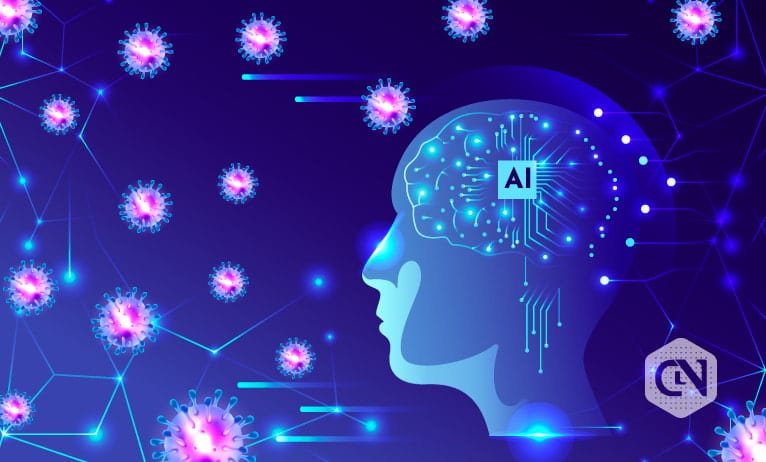The outbreak of coronavirus and its early detection by AI systems demonstrate how blockchain and AI-based applications can help prevent an outbreak of contagious diseases by enabling (a) early detection of epidemics, (b) fast-tracking drug trials, and (c) impact management of outbreaks and treatment.
Surprisingly, blockchain has proved to be an integral part of the global response to coronavirus. As we have reported over the past few months, blockchain-based platforms and systems are being employed to tackle various aspects of the issue.
For instance, blockchain is helping speed up the processes involved in insurance claims payouts to enable quicker provision of healthcare. Furthermore, it enables identity verification through secure online channels, reducing the need for paperwork and physical contact, thus preventing the disease from spreading.
At the same time, blockchain-based donation platforms have been deployed to eradicate fraud in the charity industry in light of multiple scandals pertaining to embezzlement and mismanagement of funds. The inherent transparency of the system encourages donors to donate because they can verify that the funds reached the end-beneficiaries.
Early Detection of Outbreaks
The speed and scale of AI mean that it can detect outbreaks of new diseases much sooner than people know what is happening. For instance, BlueDot, a Toronto-based startup using AI tech, identified the Coronavirus outbreak in Wuhan hours before the local authorities had even diagnosed the first cases of the virus.
Nearly a week before the Chinese government and international health organizations made official announcements regarding Covid-19, BlueDot had already confirmed its existence and relayed the information to its clients. This goes to show how AI can be instrumental in forestalling future incidents.
BlueDot is not the only one either – multiple startups are developing AI-based systems to detect outbreaks of contagious diseases like the Coronavius as soon as they happen, thus enabling them to take early action.
For example, an Israeli startup, Nanox, has harnessed AI and machine learning to develop an AI cloud-based software that incorporates “a vast image database, radiologist matching, diagnostic reviews and annotations, and also assistive artificial intelligence systems” that make early diagnosis possible.
Such systems can be installed in public places – such as airports – to enable tracking of the disease, thus improving accessibility and affordability of early-detection services across the world.
Advertisement
These systems rely extensively on the speed and scalability of AI technology. Machines can process massive amounts of data with a level of scrutiny that would not be possible for human experts. It can work around the clock at an incredibly fast speed, making the process more efficient.
Combined with human intelligence, data produced can be interpreted accurately and swiftly. Hence, decisions can be made with the speed and efficiency that is necessary during an epidemic.
AI and blockchain are the backbones of early screening and diagnosis tech: not only do they enable early detection but also allow for rapid processing of data, enabling early detection of infections and epidemics.
Fast-tracking Drug Trials
Apart from their application as firewalls against pandemics, AI and blockchain can also be of critical importance in managing vast volumes of drug trials conducted during outbreaks of contagious diseases.
Since AI can process large data volumes quickly and efficiently, it can be instrumental in reviewing existing medical data (such as existing drugs, past trials, drugs under the trial stage) to provide scientists with crucial information as they work on vaccine development.
For example, Insilico Medicine, a company that employs a high-performance AI platform for drug discovery and development, used its AI system to identify thousands of new molecules that could potentially be used to develop coronavirus treatments, within a matter of four days.
AI can help with the development of a comprehensive drug discovery engine, which scans millions of samples and molecules that already adhere to the desired set of parameters and could, therefore, potentially be developed into medications for the disease.
Management of Outbreaks
As with coronavirus, AI and blockchain tech could potentially have a considerable impact on the management of pandemic situations and the dissemination of treatment.
For instance, in China’s Wuhan province – the epicenter of the breakout – robots and drones are being used to police the streets and ensure that people adhere to quarantine notices by staying home and minimizing the risk of spreading the infection.
In Guangzhou, robots are patrolling public areas to warn bystanders to wear masks in the wake of the outbreak. AI and big data are also assisting ambulances in reaching patients faster and reducing the stresses placed on medical staff by handling an immense amount of paperwork.
Additionally, multiple nations are employing blockchain-based tools to track patients diagnosed with coronavirus and identify the people who might have been infected. For example, China’s AI and data tracking applications are tracing people traveling to and from the country, to pinpoint patients and prevent further infections.
AI and Blockchain: Preventing Future Outbreaks
As the world becomes increasingly populated and globalized, pandemics are likely to become even more challenging to control.
Advertisement
However, in an almost dystopian manner, AI and blockchain can help detect infections before they spread to the level of epidemics, help develop treatments swiftly, and help with management when pandemics do occur.
Outbreaks of infectious diseases cause uncertainty in the markets and bring financial destruction, and have a devastating impact on the economy. The Covid-19, for instance, has already cut down the global stock market by a value of $5 trillion. It is expected to cut GDP growth by a further $1.1 trillion this year
AI and blockchain are next-generation technologies that have already proven that they can be an indispensable part of averting future pandemics. Startups working in this direction can emerge as leaders and set an example of how AI and blockchain can be a force for good.







